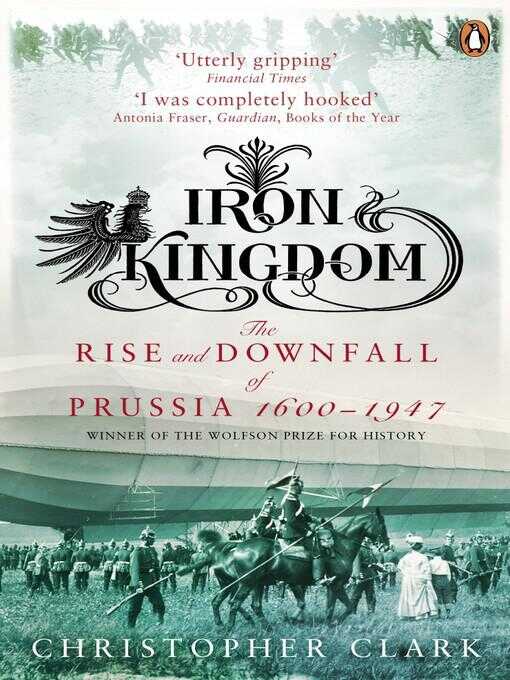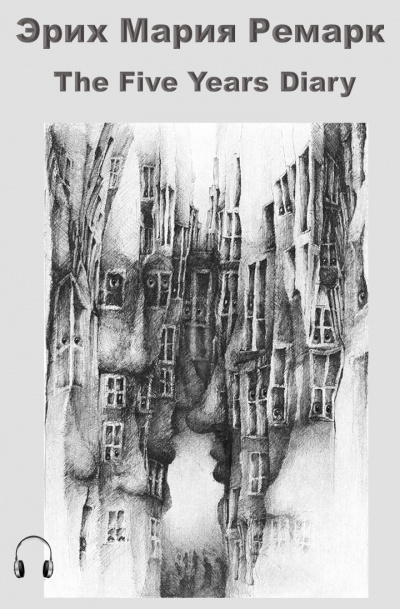Читать книгу - "Железное королевство. Взлет и падение Пруссии, 1600-1947 гг. - Christopher Clark"
Аннотация к книге "Железное королевство. Взлет и падение Пруссии, 1600-1947 гг. - Christopher Clark", которую можно читать онлайн бесплатно без регистрации
На books-lib.com вы можете насладиться чтением книг онлайн или прослушать аудиоверсию произведений. Сайт предлагает широкий выбор литературных произведений для всех вкусов и возрастов. Погрузитесь в мир книг в любом месте и в любое время с помощью books-lib.com.
40. On the prohibition of Polish grain, issued in 1722, see Wilhelm Naudé and Gustav Schmoller (eds.), Die Getreidehandelspolitik und Kriegsmazinverwaltung Brandenburg-Preussens bis 1740 (Berlin, 1901), pp. 208–9 (introduction by Naudé), and doc. no. 27, p. 373; Lars Atorf, Der König und das Korn. Die Getreidehandelspolitik als Fundament des Brandenburg-preussischen Aufstiegs zur europäischen Grossmacht (Berlin, 1999), p. 106.
41. Atorf, Der König und das Korn, pp. 113–14.
42. Naudé and Schmoller (eds.), Getreidehandelspolitik, p. 292; Atorf, Der König und das Korn, pp. 120–33.
43. Cited in F. Schevill, The Great Elector (Chicago, 1947), p. 242.
44. See Hugo Rachel, ‘Der Merkantilismus in Brandenburg-Preussen’, FBPG, 40 (1927), pp. 221–66, here pp. 236–7, 243; Otto Hintze, ‘Die Hohenzollern und die wirtschaftliche Entwicklung ihres Staates’, Hohenzollern-Jahrbuch, 20 (1916), pp. 190–202, here p. 197; Oestreich, Friedrich Wilhelm I, p. 67.
45. Cited in Baumgart, ‘Der Adel Brandenburg-Preussens’, p. 147.
46. Haussherr, Verwaltungseinheit, p. 11.
47. Frederick William I, Instruction for His Successor (1722), in Dietrich (ed.), Die politischen Testamente, pp. 221–43, here p. 229.
48. William Breton to Earl of Strafford, 28 February 1713, PRO, SP 90/6.
49. Hinrichs, Friedrich Wilhelm I, p. 364.
50. Oestreich, Friedrich Wilhelm I, p. 30.
51. Otto Büsch, Militärsystem und Sozialleben im alten Preussen (Berlin, 1962), p. 15.
52. William Breton to Earl of Strafford, 18 May 1713, PRO, SP 90/6, fo. 105.
53. Hartmut Harnisch, ‘Preussisches Kantonsystem und ländliche Gesellschaft’, in Kroener and Pröve (eds.), Krieg und Frieden, pp. 137–65, here p. 148.
54. Max Lehmann, ‘Werbung, Wehrpflicht und Beurlaubing im Heere Friedrich Wilhelms I.’, Historische Zeitschrift, 67 (1891), pp. 254–89;Büsch, Militärsystem, p. 13.
55. Carsten, Origins of the Junkers, p. 34.
56. Gordon Craig, The Politics of the Prussian Army, 1640–1945 (London and New York, 1964), p. 11.
57. On the motives for recruitment among noblemen, see Hahn, ‘Aristokratisierung und Professionalisierung’; on military service as a noble status symbol, see Göse, Ritterschaft, p. 232; citation in Harnisch, ‘Preussisches Kantonsystem’, p. 147.
58. Büsch, Militärsystem, makes this general claim, although the evidence presented in this valuable study suggests a more nuanced conclusion.
59. Harnisch, ‘Preussisches Kantonsystem’, p. 155.
60. Hagen, Ordinary Prussians, pp. 468–9.
61. Büsch, Militärsystem, pp. 33–4.
62. Harnisch, ‘Preussisches Kantonsystem’, pp. 157, 162;Büsch, Militärsystem, p. 55.
63. Frederick the Great, History of My Own Times (excerpt), in Jay Luvaas (ed. and trans.), Frederick the Great on the Art of War (New York, 1966), p. 75. The same arguments are set out in more detail in the Political Testament of 1768, see Dietrich, Die politischen Testamente, p. 517.
64. Philippson, Der Grosse Kurfürst, vol. 1, p. 20; Political Testament of the Great Elector (1667), in Dietrich, Die politischen Testamente, pp. 179–204, here p. 203; McKay, Great Elector, pp. 14–15.
65. The remark was addressed to the French envoy Rébenac; cited in McKay, Great Elector, p. 238.
66. Ibid., pp. 239–40.
67. Carl Hinrichs, ‘Der Konflikt zwischen Friedrich Wilhelm I. und Kronprinz Friedrich’, in id., Preussen als historisches Problem, pp. 185–202, here, p. 189.
68. Cited in Reinhold Koser, Friedrich der Grosse als Kronprinz (Stuttgart, 1886), p. 26.
69. Hinrichs, ‘Der Konflikt’, p. 191; Carl Hinrichs, Preussentum und Pietismus. Der Pietismus in Brandenburg-Preussen als religiös-soziale Reformbewegung (Göttingen, 1971), p. 60.
70. Hinrichs, ‘Der Konflikt’, p. 193.
71. On the growing alienation between father and son, see Johannes Kunisch, Friedrich der Grosse. Der König und seine Zeit (Munich, 2004), pp. 18–28.
72. Karl Ludwig Pöllnitz, Mémoires pour servir à l’histoire des quatre derniers souverains de la Maison de Brandebourg Royale de Prusse (2 vols., Berlin, 1791), vol. 2, p. 209. These memoirs are unreliable on many points, but this observation is corroborated by other accounts and accords with what we know of the prince at this time.
73. Kunisch, Friedrich der Grosse, pp. 34–5.
74. Theodor Schieder, Frederick the Great, trans. Sabina Berkeley and H. M. Scott (Harlow, 2000), p. 25.
75. Ibid., p. 25.
76. Cited in Theodor Fontane, Wanderungen durch die Mark Brandenburg, ed. Edgar Gross (2nd edn, 6 vols., Munich, 1963), vol. 2, Das Oderland, p. 281; on the Katte story in general, see pp. 267–305.
77. Cited in ibid., pp. 286–7.
78. Kunisch, Friedrich der Grosse, pp. 43–4.
79. Schieder, Frederick the Great, p. 29; Kunisch, Friedrich der Grosse, p. 46.
80. Peter Baumgart, ‘Friedrich Wilhelm I (1713–1740)’, in Kroll (ed.), Preussens Herrscher, pp. 134–59, here p. 158.
81. Hintze, Die Hohenzollern, p. 280.
82. Edgar Melton, ‘The Prussian Junkers, 1600–1786’, in H. M. Scott (ed.), The European Nobilities in the Seventeenth and Eighteenth Centuries (2 vols., Harlow, 1995), vol. 2, Northern Central and Eastern Europe, pp. 71–109, here p. 92.
83. Rainer Prass, ‘Die Brieftasche des Pfarrers. Wege der übermittlung von Informationen in ländliche Kirchengemeinden des Fürstentums Minden’, in Ralf Pröve and Norbert Winnige (eds.), Wissen ist Macht. Herrschaft und Kommunikation in Brandenburg-Preussen 1600–1850 (Berlin, 2001), pp. 69–82, here pp. 78–9.
84. Wolfgang Neugebauer, Absolutistischer Staat und Schulwirklichkeit in Brandenburg-Preussen (Berlin, 1985), pp. 172–3.
85. Rodney Mische Gothelf, ‘Absolutism in Action. Frederick William I and the Government of East Prussia, 1709–1730’, Ph.D. dissertation, University of St Andrews, St Andrews (1998), p. 180.
86. Ibid., pp. 239–42.
87. Ibid., pp. 234–5.
88. Wolfgang Neugebauer, Politischer Wandel im Osten. Ost-und Westpreussen von den alten Ständen zum Konstitutionalismus (Stuttgart, 1992), pp. 65–86.
89. Carsten, Origins of the Junkers, p. 41.
90. Peter Baumgart, ‘Zur Geschichte der kurmärkischen Stände im 17. und 18. Jahrhundert’, in Büsch and Neugebauer (eds.), Moderne Preussische Geschichte, vol. 2, pp. 509–40, here p. 529; Melton, ‘The Prussian Junkers’, pp. 100–101.
91. Fritz Terveen, ‘Stellung und Bedeutung des preussischen Etatministeriums zur Zeit Friedrich Wilhelms I. 1713–1740’, in Jahrbuch der Albertus-Universitätzu Königsberg/Preussen, 6 (1955), pp. 159–79.
5 Protestants
1. Andreas Engel, Annales Marchiae Brandenburgicae, das ist Ordentliche Verzeichniss vnd beschreibung der fürnemsten… Märckischen… Historien… vom 416 Jahr vor Christi Geburt, bis… 1596, etc. (Frankfurt, 1598).
2. Bodo Nischan, Prince, People and Confession. The Second Reformation in Brandenburg (Philadelphia, 1994), pp. 111–43. This account of the Elector’s confessional policy is deeply indebted to Nischan’s study.
3. Ibid., pp. 186–8. Other useful accounts of the ‘Berlin tumult’ include: Eberhard Faden, ‘Der Berliner Tumult von 1615’, in Martin Henning und Heinz Gebhardt (eds.), Jahrbuch für brandenburgische Landesgeschichte, 5 (1954), pp. 27–45; Oskar Schwebel, Geschichte der Stadt Berlin (Berlin, 1888), pp. 500–513.
4. Cited in Nischan,
Прочитали книгу? Предлагаем вам поделится своим впечатлением! Ваш отзыв будет полезен читателям, которые еще только собираются познакомиться с произведением.
Оставить комментарий
-
 Илья12 январь 15:30
Книга прекрасная особенно потому что Ее дали в полном виде а не в отрывке
Горький пепел - Ирина Котова
Илья12 январь 15:30
Книга прекрасная особенно потому что Ее дали в полном виде а не в отрывке
Горький пепел - Ирина Котова
-
 Гость Алексей04 январь 19:45
По фрагменту нечего комментировать.
Бригадный генерал. Плацдарм для одиночки - Макс Глебов
Гость Алексей04 январь 19:45
По фрагменту нечего комментировать.
Бригадный генерал. Плацдарм для одиночки - Макс Глебов
-
 Гость галина01 январь 18:22
Очень интересная книга. Читаю с удовольствием, не отрываясь. Спасибо! А где продолжение? Интересно же знать, а что дальше?
Чужой мир 3. Игры с хищниками - Альбер Торш
Гость галина01 январь 18:22
Очень интересная книга. Читаю с удовольствием, не отрываясь. Спасибо! А где продолжение? Интересно же знать, а что дальше?
Чужой мир 3. Игры с хищниками - Альбер Торш
-
 Олена кам22 декабрь 06:54
Слушаю по порядку эту серию книг про Дашу Васильеву. Мне очень нравится. Но вот уже третий день захожу, нажимаю на треугольник и ничего не происходит. Не включается
Донцова Дарья - Дантисты тоже плачут
Олена кам22 декабрь 06:54
Слушаю по порядку эту серию книг про Дашу Васильеву. Мне очень нравится. Но вот уже третий день захожу, нажимаю на треугольник и ничего не происходит. Не включается
Донцова Дарья - Дантисты тоже плачут





